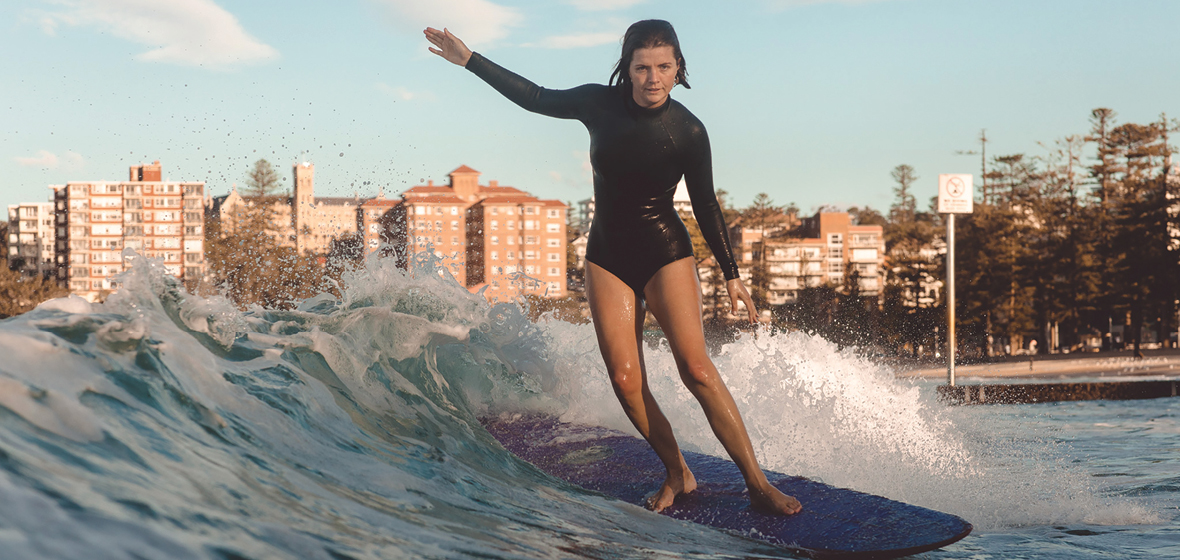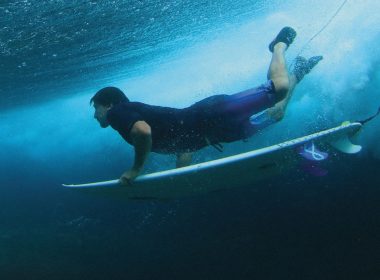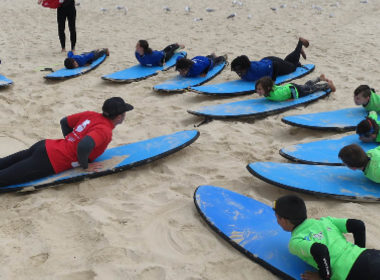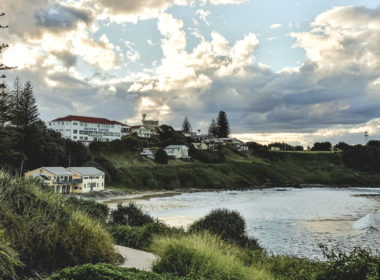When news emerged that a Northern Beaches surfing competition paid women less than half the prize money of the men, the saga sparked outrage and made the front page of national newspapers. But an association of surfing lawyers wants a long-term solution.
Sometimes the gender pay gap is nuanced and reinforced by complex structures that prevent women from advancing or force them into part-time work.
Other times, it is plain, obvious, and unjustifiably unfair. Like the prize money awarded to winners of a recent surfing competition held in Sydney’s Northern Beaches, which paid the winning female athlete less than half the prize money of the men’s winner.
The longboarding competition – dubbed the Mal Jam Pro (short for Malibu, a type of longboard) – was held at North Curl Curl in April and hosted by local club Curl Curl Longboarders. The winner of the women’s division, surfer Lucy Small from Sydney’s inner west, was awarded $1,500. The men’s winner on the same day was awarded $4,000.
Small made waves when she took the opportunity to call out the inequality and posted the speech to her Instagram profile.
“Thank you to the sponsors for the money they’ve put into the event, but I would say it’s a bittersweet victory knowing that our surfing is worth half of the men’s prize money,” she said in the speech.
“It took the same amount to drive here, flights were the same cost to fly here, accommodation cost the same and our surfing is worth half as much. So maybe we can think about that for next time.”
A few days later, her story splashed across the front page of The Sydney Morning Herald.
Just weeks after International Women’s Day brought about national discussion of the gender pay gap, and after a breakthrough women’s surfing documentary called Girls Can’t Surf hit the cinemas, a group of lawyers were furious to see Small fighting for equality in the sport.
Members of the Australasian Lawyers Surfing Association (ALSA), a non-profit organisation made up of lawyers drawn together by surfing, who are also dedicated to raising money for charitable causes such as SurfAid and the Jarjum College Indigenous school in Sydney’s Redfern, called LSJ to vent their frustration.
“I was horrified when I saw that Lucy received less than half the prize money, especially in the same year that the Girls Can’t Surf documentary was released and there’s been a greater focus on and celebration of women’s surfing,” said Vice President of the Australasian Lawyers Surfing Association and Senior Legal Counsel at Transurban Jess De Simone.
“I can’t believe this is still happening in 2021. The prize money discrepancy is unjustifiable.”
There is no law in NSW standardising prize money or requiring sporting clubs to pay men and women equally. It’s a fact that the event organiser, Vice President of Curl Curl Longboarders, Phil Nicol, was quick to point out in media interviews.
“Did we do anything illegal? No. This is a more, this is a moral issue … we’ve done nothing illegal,” he told The Sydney Morning Herald.
In a separate call with LSJ, he surmised that “there aren’t many women longboarders around”, and that “women don’t really like surfing North Curl Curl because it’s a bit crunchy; a tricky wave”.
However, De Simone said those arguments don’t stand up.
“The women were there on the same day, surfing the same waves. Women want equal pay for equal waves,” she said.
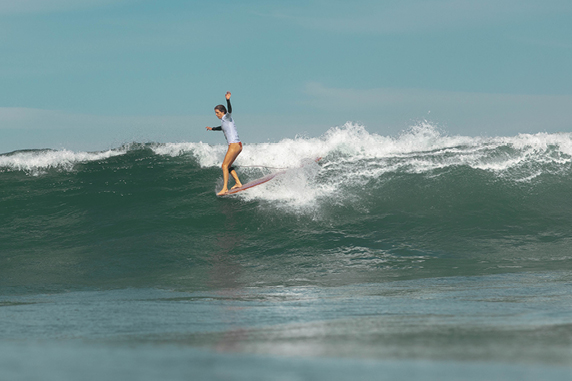
Closing out legal loopholes
Both Small and De Simone have asked surfing associations Surfing NSW and Surfing Australia to write into their rules that they will only affiliate with competitions that pay men and women equal prize money. Surfing Australia responded with an unofficial green light to implement the rule change, however at the time of writing, there is nothing in the Surfing Australia Rule Book 2021, which is made public online, that mandates equal prize money.
Additionally, the women explain it is not always well-publicised events that create problems. There is nothing preventing local board clubs holding ad hoc events with unequal prize money or opportunities for women to compete. Small says it’s common for local competitions to offer fewer entry places to women surfers, meaning there is less opportunity for women to compete. Then, some organisers use the lower number of women entrants as a reason to justify lower prize money.
“The problem is any clubs or events that don’t affiliate with Surfing NSW or Surfing Australia can just do whatever they want,” she says.
“When it comes to women and girls participating in sport there are already so many social barriers in place. We need to stamp this out. Really, anti-discrimination law should prevent it. But it’s a loophole because you’re not an employee of the event organiser.”
Employment lawyer Alex Grayson, who is Principal of Maurice Blackburn’s Employment and Industrial Relations Practice in Sydney, says the problem is that prize money does not fall neatly within the remit of the Sex Discrimination Act.
“The Sex Discrimination Act applies to employment, education, provision of goods, services and facilities and accommodation. To my mind, it wouldn’t apply to a competition like this,” she told LSJ.
“A competition doesn’t neatly fall within the definition of an employment relationship. Competing for a prize in a one-off situation is a bit different to playing a season of sport where an athlete is contracted to a team and therefore employed to play.”
Grayson, who sits on the board of the Women Lawyers Association of NSW and is also a member of the Law Society of NSW’s employment law committee, said she was astounded to read about the unequal prize money Small received. Hypothetically, she said, a creative lawyer might run an argument that anti-discrimination law would apply if that surfing competition could be defined as “provision of goods and services”. In paying the women less than the men, the organisers subjected the women to less favourable treatment, which the law prohibits.
“It seems unlikely to succeed, though,” she added.
The Californian solution
De Simone and Small are investigating the potential for NSW to introduce a Californian-modelled law that could provide a long-term solution with more bite. The US state introduced an “equal pay for equal play” law in 2019, making it illegal to pay women and men differently in athletic events held on state land in California.
The landmark law, which was signed into effect in 2020, was inspired by a surfing competition in a similar scenario to the Sydney longboarding fiasco. Women surfers were competing at the infamous big-wave competition at Mavericks in California – a notoriously heavy and dangerous break – yet were earning less than half the prize money of their male counterparts.
They claimed the prizes that paid less money to women, especially at the same venue, were tantamount to gender-based discrimination.
In a little win for Small, the media frenzy surrounding her speech reached CEO of Global Surf Industries Mark Kelly, who quietly offered to rectify the situation by paying the gap between male and female prize money across all levels of the Curl Curl Longboarders’ competition. The total was nearly $5,000. But Small said she still felt hollow after accepting the extra money.
“It feels like we need to make a more widespread change, on a more permanent basis,” she said. “Because you can create a media frenzy and shame someone into giving you the money and promising to do the right thing, but that doesn’t guarantee change for the future.”

